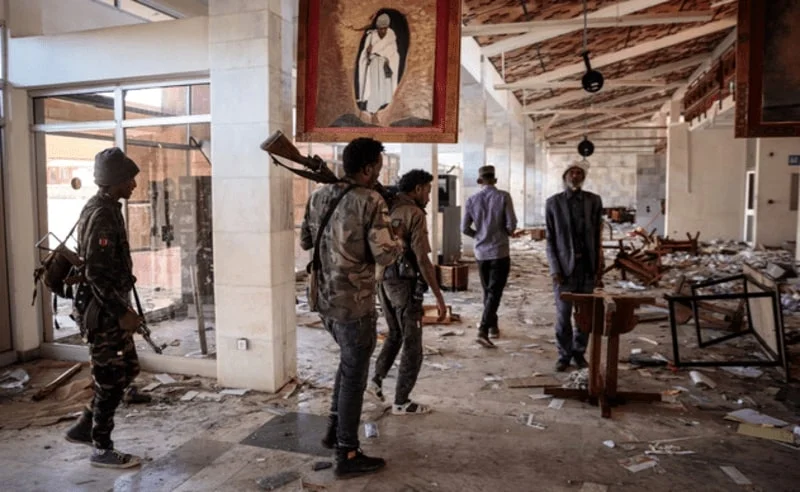On August 9, 2023, Ethiopia’s federal government imposed curfews in six Amhara cities, including Bahir Dar, Gondar, and UNESCO World Heritage site Lalibela, following clashes with the Fano militia. A federal emergency body announced that these cities were “liberated from bandits,” with curfews barring private vehicles after 7 PM and banning public rallies until August 23. The measures followed a state of emergency declared on August 4, prompted by escalating violence after the government’s attempt to disband regional paramilitary forces, including those in Amhara, sparked resistance.
Roots of the Conflict
The conflict, erupting in early August 2023, stems from tensions over the federal government’s plan to dissolve regional special forces, including Amhara’s, and integrate them into the national army or police. Fano, an ethno-nationalist Amhara militia allied with the Ethiopian National Defense Force (ENDF) during the Tigray War (2020–2022), viewed this as a betrayal weakening Amhara’s security. Local authorities, unable to control the situation, requested federal assistance. The violence, the most serious since the Tigray War, saw Fano briefly seize towns like Gondar, Lalibela, and Dessie before federal forces retook them.
Civilian Toll and Rights Concerns
No official casualty toll has been released, but hospital doctors in two affected cities reported “scores of civilians killed or injured” to AFP. A Lalibela resident told the Associated Press that over a dozen civilians died in a battle ending August 9, while an aid worker in Bahir Dar described the fighting as “very bad, with many civilians killed.” Human Rights Watch’s Laetitia Bader warned on X that the “sweeping state of emergency” risks further abuses, undermining freedoms through warrantless arrests and rally bans, with potential imprisonment of up to ten years for violations. Save The Children urged continued humanitarian access, citing risks to families and children.
Fano’s Insurgency and Regional Impact
Fano, a decentralized militia with strong local support and ex-military members, has waged a guerrilla campaign, claiming control over 80% of Amhara’s countryside by July 2025, per Wikipedia. The ENDF’s counterinsurgency, including drone strikes, has been accused of civilian deaths, with over 300 reported in 2024 alone. The state of emergency, extended beyond its June 2024 expiry, maintains de facto curfews in major cities. The conflict, now in its 20th month as of July 2025, has displaced over 100,000 people and disrupted 4.7 million children’s education, per The Conversation.
Ongoing Challenges and International Scrutiny
The Amhara crisis, fueled by distrust in Prime Minister Abiy Ahmed’s government post-Tigray peace deal, risks destabilizing Ethiopia further. Amnesty International and Human Rights Watch have called for independent investigations into alleged war crimes, including extrajudicial killings in Merawi (89 civilian deaths in January 2024) and a drone strike in East Gojjam (over 100 civilian deaths in April 2025). The government’s restrictions on media and internet access hinder monitoring, prompting calls for international scrutiny to address impunity and ensure humanitarian aid delivery amid a deepening crisis.






